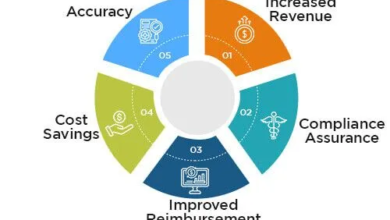When To See A Dermatologist: Signs Your Skin Needs Professional Attention

Taking care of your skin is essential for overall health and well-being. While some skin issues can be managed with over-the-counter products and home remedies, others require the expertise of a dermatologist. Knowing when to seek professional dermatologist Delray Beach help can prevent minor issues from becoming major concerns. This article will discuss the signs and symptoms that indicate it’s time to see a dermatologist.
1. Persistent Acne That Won’t Go Away
Acne is a common skin condition that most people experience at some point. However, it may be time to consult a dermatologist when acne becomes severe or doesn’t respond to over-the-counter treatments.
Persistent acne can indicate underlying hormonal imbalances, infections, or other medical conditions requiring professional intervention.
A dermatologist can prescribe stronger medications, such as topical retinoids, antibiotics, or oral contraceptives, to help manage and reduce acne.
2. Unexplained Rashes Or Redness
Rashes or redness that appear suddenly and don’t improve with basic care can be concerning. Various factors, including allergies, infections, or chronic skin conditions like eczema or psoriasis, can cause these symptoms.
If a rash is accompanied by other symptoms such as fever, pain, or swelling, it’s crucial to see a dermatologist as soon as possible.
A dermatologist can diagnose the underlying cause and provide appropriate treatment to alleviate discomfort and prevent further complications.
3. Changes In Moles Or Skin Lesions
Moles and skin lesions are usually harmless, but any changes in their appearance should be monitored closely.
Look out for moles that change in size, shape, color, or texture. Additionally, if a mole starts to bleed, itch, or become painful, it could be a sign of skin cancer.
Dermatologists are trained to evaluate moles and perform skin cancer screenings. Early skin cancer detection is critical for successful treatment, so consult a dermatologist if you notice any unusual changes.
4. Chronic Dryness And Flaking
While dry skin is common, especially during colder months, persistent dryness and flaking can indicate an underlying skin condition like eczema, psoriasis, or dermatitis.
When moisturizing regularly doesn’t improve your skin’s condition, it’s time to see a Boca Raton dermatologist.
These professionals can identify the cause of your dry skin and recommend treatments, such as prescription creams or lifestyle changes, to restore your skin’s health.
5. Itching That Won’t Go Away
Itching is often a sign of dry skin or an allergic reaction, but it requires professional attention when it becomes persistent and interferes with your daily life.
Chronic itching can be a symptom of various skin disorders, including eczema, psoriasis, or systemic conditions like liver disease.
A dermatologist can help determine the cause of your itching and suggest appropriate treatments to provide relief.
6. Severe Sunburns Or Sun Damage
While mild sunburns can be treated at home, severe sunburns that cause blistering, swelling, or intense pain should be evaluated by a dermatologist.
Additionally, you notice signs of sun damage, such as age spots, fine lines, or rough patches of skin.
In that case, a dermatologist can recommend treatments like chemical peels, laser therapy, or topical creams to improve your skin’s appearance and reduce the risk of skin cancer.
7. Hair Loss Or Changes In Hair Growth
Hair loss or changes in hair growth patterns can be distressing and are often linked to underlying health conditions or skin disorders. Conditions like alopecia, thyroid disorders, or even scalp infections can cause hair loss.
A dermatologist can diagnose the cause of your hair loss and recommend treatments, such as topical minoxidil, oral medications, or hair restoration therapies, to promote hair regrowth.
8. Nail Changes Or Infections
Your nails can provide important clues about your overall health. If you notice changes in your nails’ color, shape, or texture, or if you develop painful nail infections, it’s time to see a dermatologist.
Conditions like fungal infections, psoriasis, or even melanoma can affect the nails, and early diagnosis and treatment are crucial for preventing further complications.
9. Unexplained Skin Growths Or Bumps
New or rapidly growing skin bumps, lumps, or growths should always be addressed. While many skin growths are benign, some can be precancerous or malignant.
A dermatologist can perform a biopsy to determine the nature of the growth and recommend appropriate treatment, whether it’s surgical removal or monitoring over time.
10. Persistent Skin Discoloration
Changes in skin color, such as darkening (hyperpigmentation) or lightening (hypopigmentation), can be a sign of underlying skin conditions or hormonal imbalances.
Conditions like melasma, vitiligo, or post-inflammatory hyperpigmentation require a dermatologist’s expertise for diagnosis and treatment.
Dermatologists can offer topical creams, chemical peels, or laser therapy to help even your skin tone.
Conclusion: Don’t Ignore Your Skin’s Signals
Your skin is your body’s largest organ and often reflects your overall health. When you notice changes that don’t resolve with basic care or are accompanied by other symptoms, it’s crucial to consult a dermatologist.
Early intervention can prevent serious issues and ensure your skin remains healthy and vibrant.
Whether it’s persistent acne, suspicious moles, or unexplained rashes, your dermatologist has the expertise to provide the care your skin needs.
Don’t wait for a minor issue to become a significant concern—schedule a visit with Allenby Cosmetic Dermatology to keep your skin in top condition.



